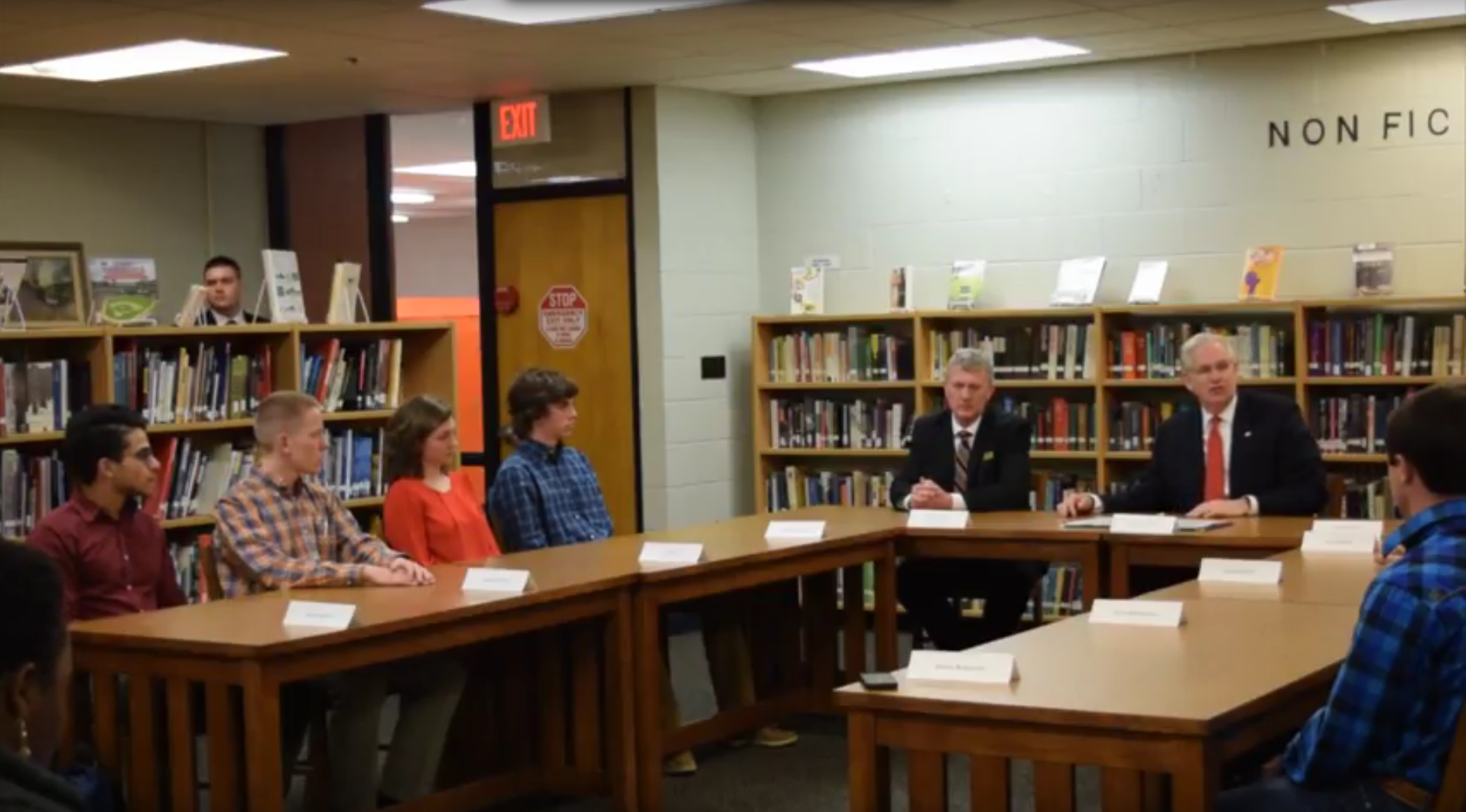
Missouri Gov. Jay Nixon met with a panel of Kirksville High School seniors and Kirksville R-III school district officials Wednesday to discuss the importance of higher education affordability.
The panel included district superintendent Damon Kizzire, high school principal Randy Mikel and a group of eight high school seniors.
The panel discussed various aspects of education including standardized testing, taxes for higher education, college and university tuition freezes, the Common Core State Standards Initiative and the role of national government in education.
The governor’s fiscal year 2017 budget proposal, which includes an increase of $55.7 million in performance funding for public colleges and universities, was up for approval by the Missouri House last week. However, the House approved a budget that does not included Nixon’s proposed funding for higher education.
Nixon appealed to the Senate at the roundtable discussion to restore the lost funding to higher education, pointing out the state has the money to spend in higher education.
“The decision by the Missouri House to strip new dollars from every public college and university makes no sense,” Nixon says in a press release. “The budget is balanced, our economy is growing and the dollars are available to secure this tuition freeze.”
Nixon says if the Senate does not pass the budget with the proposed funding, then the effect will be twofold. He says colleges and universities like Truman State will have to increase tuition. He says if that happens, Missouri will not be able to stay competitive and students won’t be able to graduate without debt.
Missouri leads the nation in college affordability, Nixon says. Nixon also spoke about the close connection between higher education and the state of education.
“If tuition goes up, out of control … if we lose that advantage — it slows the economy down,” Nixon says. “I think Truman has a very challenging situation.”
Nixon says states that figure out how to reduce student debt are going to have better economies.
